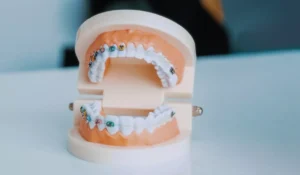Bad breath, also known as halitosis, affects about 50% of adults worldwide. It is an oral health condition that leads to an unpleasant odor coming from the mouth.
Several factors can lead , such as the food you eat, tobacco consumption, poor oral hygiene, and more. Some people may suffer from chronic bad breath while others may experience it occasionally. However, fortunately, there are also many ways to get rid of it.
Let’s have a look at the primary causes of bad and the remedies that can make it go.
Major Causes of Bad Breath
Following are some common causes of bad breath or halitosis:
Poor Oral Hygiene

Poor oral health care is one of the most significant reasons for bad breath. Taking care of your oral hygiene includes brushing, flossing, and washing your mouth regularly and with utmost care. In case you fail to do so, food particles accumulate on your tongue, teeth, and gums. These food particles may cause bacterial growth and plaque buildup in your mouth, leading to bad breath and increasing the likelihood of other oral health conditions.
However, if you aren’t able to get rid of bad breath even after proper oral health care, it may be due to halitosis. According to Winter Dental, a dentist in Huntersville, halitosis is a chronic oral health condition that can only be diagnosed and treated by a qualified physician.
Food

The food you eat characterizes your overall wellness, including oral health. Certain foods items such as garlic and onions are known for causing bad breath. However, many other lesser-known facts about food may also lead to smelly breath.
High-sugar diets, high-protein diets, and low-carb diets can also cause bad breath. Moreover, acidic beverages can leave a lingering smell. Some food may get stuck in the teeth, resulting in bad breath.
Tobacco Consumption

Consuming tobacco not only stains your teeth and puts your health at risk but also causes bad breath. There are many tobacco products commonly used by people, such as cigarettes and cigars, which can cause mouth odor. Furthermore, tobacco intake can increase the risk of other oral health conditions, such as periodontal disease and oral cancer.
Dry Mouth

Your saliva is the natural way of keeping your mouth clean. However, if your mouth tends to go dry, you may suffer from breath. That’s because when there is a significant decrease in saliva production, the mouth is unable to cleanse itself and remove lingering food debris and particles.
Certain Medical Conditions

Sometimes, breath is a symptom of an underlying health problem, such as:
- Digestion issues
- Sinus infections
- Various ear, nose, and throat infections
- Lactose intolerance
- Diabetes
- Liver disorders
- Kidney diseases
How to Get Rid of Bad Breath?
Here are a few easy yet effective measures you can take to reduce or prevent bad breath:
Take Care of Your Oral Hygiene
Keeping your mouth clean is the first step to getting rid of bad breath. Taking care of your overall health includes brushing your teeth after every meal, scraping your tongue, and flossing at least once a day. In addition to this, consider gargling with mouthwash and make sure your dentures or dental appliances are clean.
All these steps reduce the risks of bacterial growth, plaque buildups, and lingering food particles in your mouth, ultimately minimizing bad breath.
Be Watchful of the Food You Eat
Avoid consuming food items that make your mouth smell bad. This may include garlic, onion, cheese, fish, and more. In addition, consuming a healthy, balanced diet can also help reduce breath. That’s because eating a healthy diet prompts your digestive health, which is often a cause of smelly breath.
Stay Hydrated
Your mouth should always remain moist to prevent breath and tooth decay. If you have limited saliva production and your mouth quickly gets dry, then drink plenty of water throughout the day to stay hydrated. Moreover, avoid excessive consumption of alcohol and tobacco as they can lead to a dry mouth.
See a Doctor
It’s always better to stay one step ahead and take preventative measures to fight unhealthy oral conditions, including breath. If you’re experiencing chronic breath, then immediately visit a doctor or dentist as they’ll be able to diagnose the root cause and prescribe treatment accordingly.
Moreover, it’s always good to seclude regular dental exams, preferably at least twice a year, to ensure that your oral health is maintained and taken care of.



